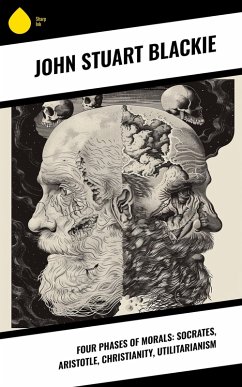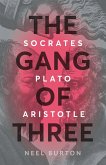In "Four Phases of Morals: Socrates, Aristotle, Christianity, Utilitarianism," John Stuart Blackie embarks on an analytical journey through the moral philosophies of four pivotal figures in Western thought. This work intricately examines the evolution of moral thought, juxtaposing Socratic inquiry, Aristotelian virtue ethics, Christian moral doctrine, and utilitarian principles. Blackie's literary style is characterized by its clarity and depth, offering readers a richly textured discourse that bridges classical antiquity with modern ethical debates. The text serves as an exploration of how ethical frameworks shape human behavior, revealing the interconnectedness and contrasts inherent among these influential moral paradigms. Blackie, a Scottish philosopher, poet, and scholar, was driven by a fascination with the historical interplay of ideas. His academic background in philosophy and literature equipped him with a unique lens through which to critique and synthesize these diverse moral philosophies. Blackie's profound respect for the canon of Western philosophy and his desire to engage readers in ethical contemplation are reflected in this carefully constructed examination, underscoring not only the historical significance but also the practical implications of these moral ideologies. This illuminating work is highly recommended for students of philosophy, ethics, or general readers seeking an accessible yet profound understanding of moral evolution. Blackie's synthesis not only enriches one's knowledge of philosophical history but also encourages critical thinking about the moral frameworks that govern contemporary society. Immerse yourself in this compelling discourse that captures the essence of human ethical thought through the ages.
Dieser Download kann aus rechtlichen Gründen nur mit Rechnungsadresse in A, B, BG, CY, CZ, D, DK, EW, E, FIN, F, GR, HR, H, IRL, I, LT, L, LR, M, NL, PL, P, R, S, SLO, SK ausgeliefert werden.
Hinweis: Dieser Artikel kann nur an eine deutsche Lieferadresse ausgeliefert werden.









